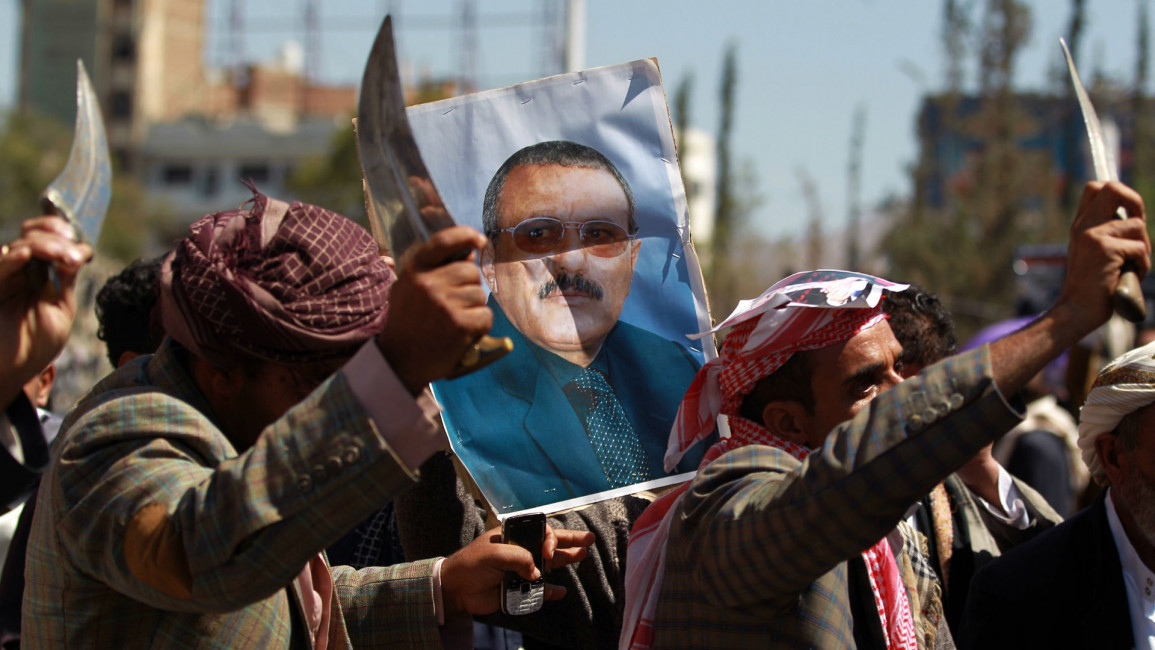Houthi-Saleh divorce? Yemen's former president reaches out to Saudis
Yemen's former President Ali Abdullah Saleh appeared to turn against his Houthi allies this week, giving his media agencies the green light to "expose" the rebels and saying he was willing to negotiate with rival Saudi Arabia.
Saleh, who survived an assassination attempt in 2011, resigned as leader in February 2012 following massive public pressure, but he remains a highly influential figure in Yemen.
"We have no choice but dialogue," Saleh said at a meeting of his General People's Congress party in the Yemeni capital Sanaa on Tuesday.
"We are ready to go to Riyadh, Khamis Mushit, Muscat or elsewhere to start dialogue and to reach an understanding," Saleh said, referring to cities in Saudi Arabia and neighbouring Oman.
Parts of the army remained loyal to Saleh after his resignation and he solidified his position as a crucial player in 2014 when he forged an alliance with the Houthi rebels.
The Houthis, who have been accused of human rights abuses, currently control Yemen's capital, the northern region bordering Saudi Arabia, and a string of key ports along the Red Sea coast.
"Saleh, during a meeting with a number of members of the General People's Congress, threatened to sell the Houthis to the [Arab] coalition should they not bow to his demands," Saudi Arabia's official news agency said on Wednesday.
Current President Abd Rabbo Mansour Hadi served as a deputy under Salah, and is not a bitter rival of the former president.
His government is based in Aden, south Yemen, but Hadi mainly resides in Saudi Arabia.
Despite the comments, Saleh reiterated his rejection of the current Hadi-led government and said Saudi Arabia would have to find a "new leadership" for the country.
Members of Saleh's circle have been meeting unofficially with Saudi delegates for weeks in Berlin, a Yemeni government official told AFP on Wednesday.
Meanwhile, the UN special envoy for Yemen, Ismail Ould Sheikh Ahmed - who Saleh previously branded as biased - is currently in Riyadh for talks on the country's ongoing conflict, according to government spokesman Rajeh Badi.
More than 10,000 people have been killed since the conflicted escalated with the Saudi-led military intervention in March 2015.
Agencies contributed to this report.


![President Pezeshkian has denounced Israel's attacks on Lebanon [Getty]](/sites/default/files/styles/image_684x385/public/2173482924.jpeg?h=a5f2f23a&itok=q3evVtko)



 Follow the Middle East's top stories in English at The New Arab on Google News
Follow the Middle East's top stories in English at The New Arab on Google News


